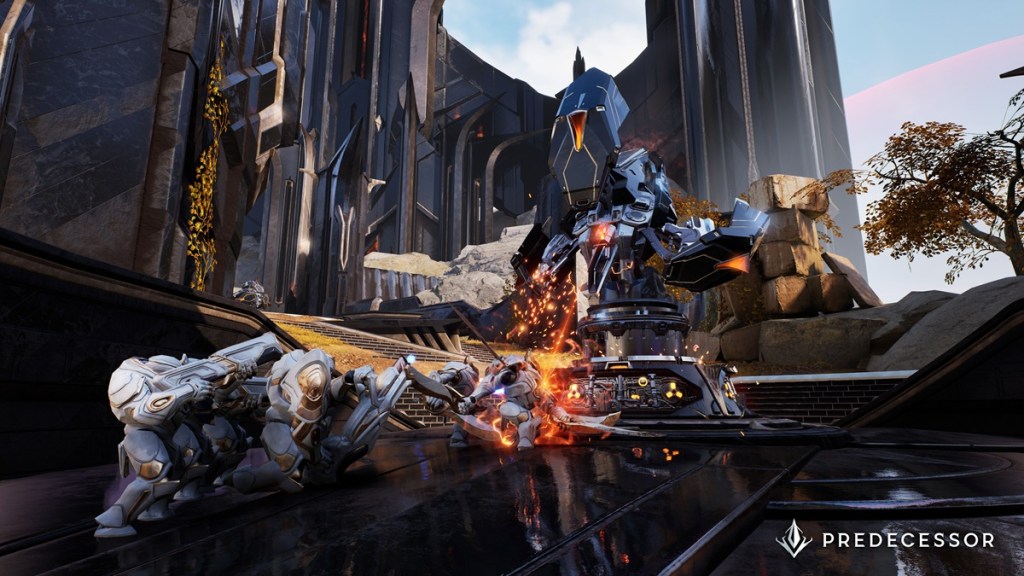Omeda Studios fixes Predecessor multiplayer matchmaking by consolidating its server locations

Omeda Studios scored a hit game with Predecessor, a multiplayer online battle arena game, when it launched in August 2024.
Robbie Singh, CEO of Omeda Studios, said the company scored more than two million players so far, but there was a problem to fix. The company had servers on the West Coast or the East Coast of the U.S., and it was hard to put players into matches where the “ping” time, or the time it takes for an action in the game to go across the network and back, was uniform for all.
By way of background, the fact that Omeda has a real game at all is impressive. Singh, who was a big fan of the original game, helped bring it back from the dead. Epic Games started the work on the title, then called Paragon, years ago but shut it down in 2018. But rather than close it altogether, Epic Games open sourced the title, and creator Singh agreed to acquire it in 2021.
After four years of development (and $22 million raised, including some via a grant from Epic Games), Singh’s Omeda Studios finally launched the title in August 2024. The game debuted on the PC, PlayStation and Xbox platforms and now has two million players across all those platforms. As a result of the success, the team has grown from about five to 10 at the start of development to 87.
But the server problem generated a lot of varying opinions.
“The strategy was, at least when we spoke many years ago, to be able to play with their friends regardless of what device or where they were. And so I think the long term vision for us was always that we wanted to be able to do for people in North America. They could play regardless of where they were. Now we’ve been able to do this with servers located in Dallas,” Singh said in an interview with GamesBeat.
Using Hathora as a technology solution, Singh said the company decided to consolidate all of its servers in Dallas, which generally has a reputation for having the best internet in the country. This helped reduce the ping differences between the West Coast players and the East Coast players, resulting in happier players, Singh said. Data collected over a few months showed that centralized servers worked better for everyone, he said. Then it pulled the trigger with its recent 1.4 update.
The ping time had been about 100 for the West Coast, and 80 for the East Coast. Now, with improvements to the technology, both coasts can operate on a ping time of 40 milliseconds.
“People are able to play with their friends and as a competitive game it has integrity,” Singh said.
Players can generally see the difference. It’s usually the most competitive players that will notice it the most, he said.

“The game just feels a lot more responsive, obviously because there’s less latency. In a competitive third-person over the shoulder game, skill shots matter,” he said. “I think having that real low latency just makes the game feel way better and more competitive.”
This update has significantly improved the game’s responsiveness and competitive experience. The company also introduced central servers to ensure consistent latency for mixed teams. Meanwhile, Singh said the Discord integration now powers all of the game’s voice chat among players. In the future, players will be able to invite their friends from Discord into a match in Predecessor. The company is also using GGWP to moderate voice chat for toxic behavior.
Future plans include expanding to South America and Asia, and they are considering localization and community building in these regions. The company is excited about the community’s proactive involvement in hosting tournaments.
Now the company is getting ready for a community-hosted tournament with a $30,000 prize pool, indicating strong community engagement. And in the coming months, Singh said Omeda will be introducing servers in South America soon, where there is a large player base already. In the future, the company will look at servers in Asia and the Middle East.
“As a small company, we have to be careful about where we choose to roll out first because when we go into a region, I really want to support it, versus just turning on a server,” he said. “You want to do marketing. Want to build a community there, kind of how we’ve done in all these other countries.”
Singh hopes that by sharing information with other game startups, he can offer helpful advice and help others avoid making the same mistakes.




Comments are closed, but trackbacks and pingbacks are open.